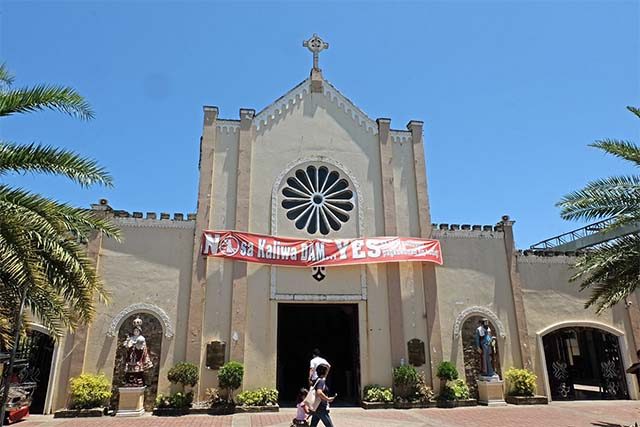
The Catholic Church’s social justice arm welcomed a House panel order to stop the Kaliwa Dam construction in indigenous communities, pending their consent.
The bishops’ Commission on Social Action, Justice and Peace reaffirmed the stand of the Catholic hierarchy that the mega dam project “is against inclusive development”.
Bishop Jose Colin Bagaforo, its chairman, said that the common good must not be sacrificed for the benefit of business interests.
“The indigenous people, the community, and the environment should not be sacrificed on the altar of development aggression that would only benefit the interest of big businesses,” Bagarofo said.
“The State must respect the indigenous people as the guardians of the country’s remaining biodiversity and who have all the right to protect their ancestral territories,” he said.
The House Committee on Indigenous Cultural Communities and Indigenous Peoples on Tuesday directed certain agencies involved in the project to cease activities inside the affected ancestral domain of the Agta-Dumagat-Remontado tribes.
The order remains until a free, prior, and informed consent is completed from the indigenous communities that are reportedly threatened to be displaced because of the project.
In 2020, the Catholic bishops’ leadership added its voice against the P12.2 billion China-funded project, and called for its “proper review” in order “to correct its flawed procedures”.
The proposed dam is one of the several bulk water supply projects on the upper portion of the Kaliwa River watershed.
A part of the “New Centennial Water Source” program, the mega dam aims to ease persistent water shortage woes for Metro Manila’s nearly 13 million residents.
But environmental activists warned the project threatens to displace at least 11,000 families living across the 28,000 hectares of land, not including those living in more established towns.
They said it will also submerge almost 300 hectares of forest ecosystems, threatening 126 endemics, and endangered species of plants and wildlife.









